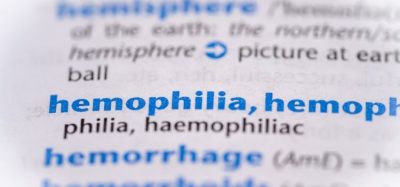Seven pharma CEOs unite to achieve emission targets
Posted: 3 November 2022 | Catherine Eckford (European Pharmaceutical Review) | No comments yet
In a global first, the health sector has converged to incentivise supply chains and clinical trials to reduce emissions through the Sustainable Markets Initiative Health Systems Task Force.


Seven pharmaceutical CEOs from AstraZeneca, GSK, Merck, Novo Nordisk, Roche, Samsung Biologics and Sanofi have announced joint action to achieve near-term emission reduction targets and fast-track the roll of net zero health systems.
This is the first time the global health sector has joined to reduce greenhouse emissions through the Sustainable Markets Initiative (SMI) Health Systems Task Force, a public-private partnership launched at COP26.
Common standards to help achieve emission targets
The Task Force will focus on reducing emissions across supply chains and clinical trials, by developing common standards to incentivise suppliers to take action across the supply chain.
Member companies of the Task Force will leverage digital health solutions by:
- Building and committing to a common framework to measure emissions created from Phase II and III clinical trials by 2023. Companies intend to report emissions for these trials from 2025
- Align new trials to companies’ decarbonisation pathway and put in place emission targets for clinical trials by no later than 2030
- Persuade clinical research organisations and clinical trial suppliers to commit to measuring and reducing emissions. A framework via digital solutions will help the groups keep track
- Ensure more than 90 percent of trials starting in 2025 include a review of how digital solutions can lower emissions.
The Task Force will partner with the Alliance for Transformative Action on Health and Climate (ATACH). The collaboration will provide recommendations to over 60 governments committed to climate resilience and low carbon health systems at Minister of Health level.
The SMI Health Systems Task Force also includes leaders from World Health Organization (WHO), UNICEF and academic and non-governmental organisations.
“Failing to keep the 1.5°C goal alive will have irreversible impacts on global health,” explained Dr Tedros Adhanom Ghebreyesus, Director-General of WHO. “The commitments announced today demonstrate the power of public-private partnership to achieve positive and sustainable change.”
The Task Force has published whitepapers outlining recommendations and scalable actions for Decarbonising Healthcare Supply Chains and The Digital Solution for Sustainability in Clinical Research.
Related topics
Big Pharma, Biopharmaceuticals, business news, Clinical Trials, Drug Supply Chain, Industry Insight, Supply Chain, Sustainability
Related organisations
Alliance for Transformative Action on Health and Climate (ATACH), AstraZeneca, GSK, Merck, Novo Nordisk, Roche, Samsung Biologics, Sanofi, Sustainable Markets Initiative (SMI) Health Systems Task Force, The World Health Organization (WHO), UNICEF









